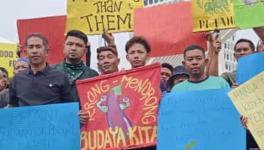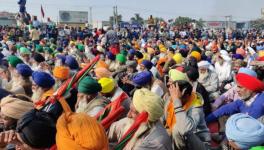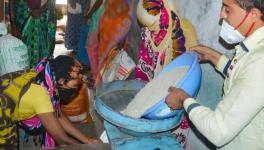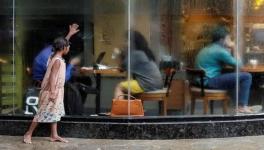Part of South Sudan Facing 'Likely Famine', Says Report
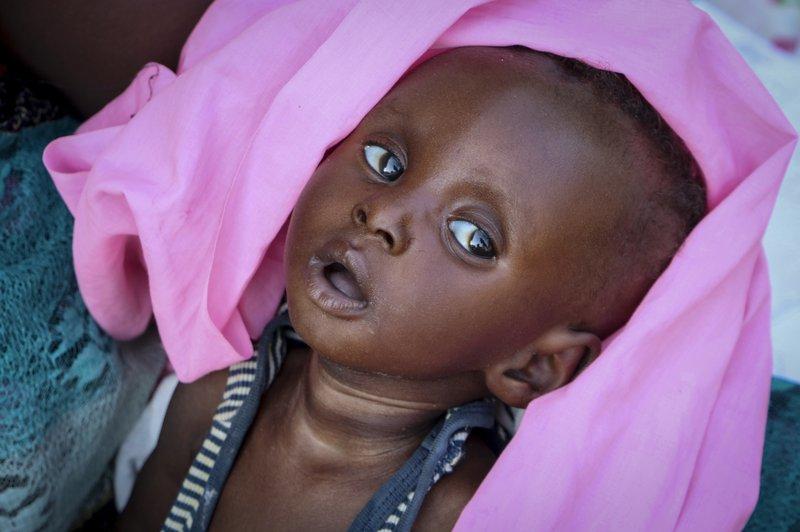
Image Courtesy: AP
Juba (South Sudan}: One county in South Sudan is likely in famine and tens of thousands of people in five other counties are on the brink of starvation, according to a new report by international food security experts.
Nowhere in the world has been in famine since one was declared nearly four years ago in South Sudan's Unity state as civil war raged.
Now western Pibor county is feared to have reached that crisis level, the result of massive flooding and deadly violence that has prevented access to aid.
The new report stops short of declaring famine, which would kick aid efforts into higher gear, because of insufficient data.
But based on available information, famine is thought to be occurring, according to the Famine Review Committee report released by the Integrated Food Security Phase Classification.
That means at least 20% of households are facing extreme food gaps and at least 30% of children are acutely malnourished.
“Considering all the evidence available, famine is most likely ongoing, and we expect a high rate of death in that area,” said Chris Newton, a former UN World Food Programme staffer with years of experience in South Sudan.
“The condition is catastrophic, and the humanitarian community and the government will have to scale up our assistance,” said Meshack Malo, country representative for the UN's Food and Agriculture Organisation.
The report says catastrophe conditions are also occurring in five counties across South Sudan in Jonglei, Warrap and Northern Bahr el Ghazal states, where 5–10% of the population is facing starvation.
South Sudan's government did not endorse the report. In a statement earlier this week, it urged caution in claiming famine conditions and said any famine occurring on the government and aid community's watch is a “testament of failure by both parties."
Aid workers worry that already challenging humanitarian access will become more difficult in these hungry areas.
The report says there is less than a 50% chance that planned food assistance will be delivered to the affected areas in the months ahead.
South Sudan has been struggling to recover from five years of war that killed almost 400,000 people, according to a past study by the London School of Hygiene & Tropical Medicine.
A coalition government formed this year between President Salva Kiir and opposition leader Riek Machar is implementing a peace deal behind schedule, while deadly violence continues in parts of the country.
The violence is the worst in Jonglei state and the Greater Pibor Administrative Area, where hunger is the most severe.
“This famine is a result of the broader impact of violence on human lives,” said Edmund Yakani, executive director of the Community Empowerment for Progress Organisation, a civil society group.
He blamed "politicians who tend to use violence as an option for controlling power.”
Between January and May there was a 220% increase in incidents of inter-communal violence compared with the same period two years ago, the UN has said, with the government and opposition often providing arms.
A UN panel of experts has said the fighting prevented people from cultivating, blocked supply routes and burned down markets while humanitarian warehouses were looted and several humanitarian workers were killed.
The problems have been compounded by the worst local flooding in decades, which has displaced more than one million people since July.
Most of them are in Jonglei and the Greater Pibor Administrative Area, according to the UN.
On a visit to the community of Old Fangak in Jonglei last month, displaced residents said the floods had wiped out their crops and cattle.
“It is difficult to get food unless we get it from the humanitarian organisations,” said a dispirited Regina Nyakul.
Since her home was destroyed by the floods, the mother of nine shelters in a school with her children. Sometimes they fall ill due to a lack of food, she said.
At the market, trader Gatluak Billiew said the floods had spoiled food commodities and made it difficult to restock.
“We are very worried about the upcoming dry season that will lead to more violence” bringing yet another crisis, said Jose Mas Campos, head of mission for Doctors Without Borders in South Sudan.
But the hunger is a countrywide problem. A recent World Bank phone survey of more than 1,200 people in South Sudan found that nearly 73% reported going without eating for a whole day due to a lack of money.
A drop in oil prices, the country's main source of revenue, along with inflation and impacts of the COVID-19 pandemic, have worsened an economic crisis.
At the Al-Sabah Children's hospital in the capital, Juba, doctors say they have seen an increase in children dying from malnutrition.
Get the latest reports & analysis with people's perspective on Protests, movements & deep analytical videos, discussions of the current affairs in your Telegram app. Subscribe to NewsClick's Telegram channel & get Real-Time updates on stories, as they get published on our website.









